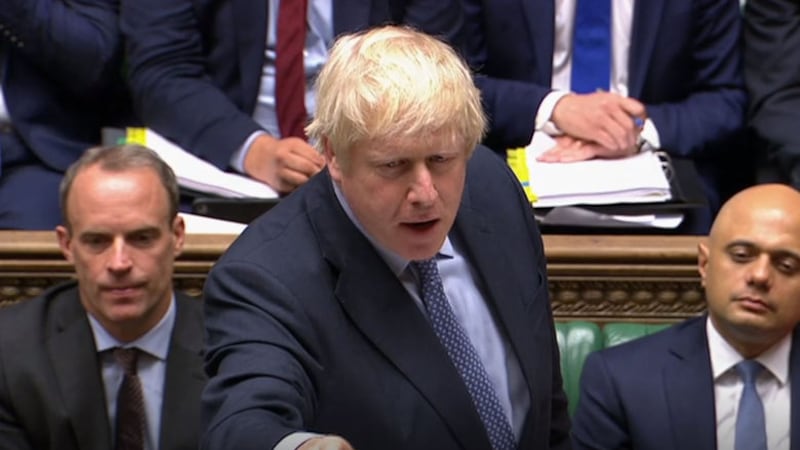SINCE Boris Johnson took over from Theresa May it had always been his plan to either force MPs to subjugate or call a general election.
The mayhem at Westminster this week should have come as little surprise. It is all part of a choreographed plan by the prime minster, mapped out by the ‘Dark Lord’ in the form of his adviser Dominic Cummings.
Among the MPs who rebelled against Mr Johnson this week was Winston Churchill’s grandson Sir Nicholas Soames. He said he would end his own parliamentary career if an election was called. It is a decision that may not be his to make as the Tory rebels have already been told they will be deselected in the event of a general election. Sir Nicholas said: “The fact is I’m satisfied that the prime minister himself wants a deal but the deal he wants is not available.”
And that sums up where we now are. The EU have said repeatedly that the deal they made with Theresa May is the only one on the table and that if the British government want the backstop removed from the withdrawal agreement they would have to produce alternative arrangements to prevent a hard border in Ireland.
We already know that a sea border is the most sensible arrangement to reduce Brexit chaos on our island and we already know the DUP have dismissed this outright.
It is now for Mr Johnson to try and change the arithmetic at Westminster in order to push ahead with his plans for delivering Brexit by October 31. But what will that mean for us? There is an opportunity here for local pro-Remain parties to make a pact and maximise their influence and reduce the number of DUP MPs. The most obvious constituencies would be a straight North/South Belfast exchange between Sinn Féin and the SDLP, letting John Finucane run as the only nationalist candidate in North Belfast in return for Claire Hanna representing the SDLP in the south of the city without a Sinn Féin challenger. This could prevent Emma Little-Pengelly being returned and give Nigel Dodds a serious run for his money.
All eyes will also be on North Down where the incumbent Sylvia Hermon faces a major DUP challenge.
Lady Sylvia is the only Remain voice representing Northern Ireland at Westminster.
Northern Ireland-born Kate Hoey has already said she will not stand for Labour again. The party was never a good fit for the current MP for Vauxhall. Just this week she said she wouldn’t rule out standing for a different party. Given that she is an avid Brexiteer, that would likely have been the Brexit Party.
If Mr Johnson and his team of strategists can convince Nigel Farage that they’ll deliver Brexit on the deadline he is unlikely to field any candidates against the Conservatives.
Ms Hoey could have been the big name needed to take on Lady Sylvia, who won her seat with a reduced majority in the last general election, but on Wednesday night she rejected such speculation.
North Down was a Remain constituency in the referendum but only by 2,000 votes.
Any election at this time will become a mini referendum. Prospective MPs will very clearly have to state whether they will be backing the prime minister as he moves ever closer to a no-deal Brexit.
It is obvious from the last two years that the majority of MPs either don’t understand the very unique challenges facing the north or simply don’t care. Our future lies in the hands of people who have little concern for the future political and economic stability of our island.
For those who wish to remain and feel unrepresented in the disorderly debates at Westminster, all eyes are increasingly on Dublin.
The message from Leo Varadkar must remain consistent – the north must not be left behind or forgotten amongst the bluster of Boris.








